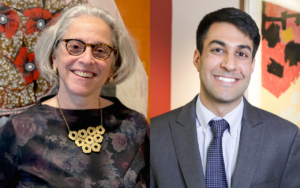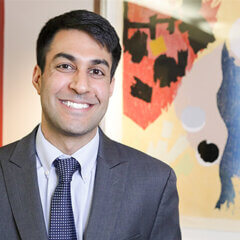 By Sharon Krevor-Weisbaum and Neel Lalchandani
By Sharon Krevor-Weisbaum and Neel Lalchandani
Earlier this year, the American Bar Association Journal published an article titled, “Bar examinees have little success with accommodation requests and say the process is stressful.” The article explains the unfortunate reality that testing entities routinely deny students with diagnosed disabilities the accommodations they need on important tests like the Multistate Professional Responsibility Exam (MPRE) and the bar exam.
In our experience as lawyers who represent test-takers with disabilities, testing entities often use the same handful of reasons to deny students accommodations. These include:
- Finding that test-takers lack the appropriate documentation to substantiate their disabilities;
- Claiming that test-takers’ disabilities are not severe enough to warrant accommodations;
- Faulting applicants for not having undergone testing in their early childhood, especially in cases involving ADHD;
- Faulting students for not applying for testing accommodations on prior standardized exams; and
- Concluding that individuals who have achieved average or above average scores on certain tests must not have a disability that requires accommodations.
Testing entities, like the National Conference on Bar Examiners and the American Association of Medical Colleges, often cite these reasons in short denial letters with little-to-no other explanation. Making matters worse, these entities commonly ignore the evidence presented by the test-takers. In some cases, testing entities refuse to provide accommodations even when the student had previously received the same accommodations in school or for other standardized exams. Students also often submit evaluations from medical professionals to support their applications. Yet, in many cases, testing entities disregard the recommendations of the medical professionals who have personally met with and evaluated the test-takers seeking accommodations.
At Brown, Goldstein & Levy, we understand that the process for applying for testing accommodations can exacerbate the already-stressful process of taking high-stakes exams. We have represented numerous students who have asserted their rights under the Americans with Disabilities Act to receive the testing accommodations they require and deserve.
We have significant experience preparing appeals and requests for reconsideration when a testing entity has denied accommodations such as extended time. This includes assisting students in California, Maryland, Washington DC, New York, and other states across the country, to obtain accommodations on the bar exam, MCAT, ACT, SAT, LSAT, and several other standardized and professional licensing exams. We have experience representing test-takers who are blind and/or experience various disabilities, including those who have ADHD, dyslexia, depression, anxiety, OCD, and/or PTSD.
If you are planning to apply for testing accommodation or to appeal the denial of such a request, or if you have any questions about your right to disability-related accommodations under federal law, please call us at 410-962-1030 for a consultation today.
* Content on this website, including blog articles, are proprietary and copyright protected. If you wish to use all or part of a blog article, we request that you properly attribute the work and include a link to the Brown, Goldstein & Levy webpage on which it appears.

